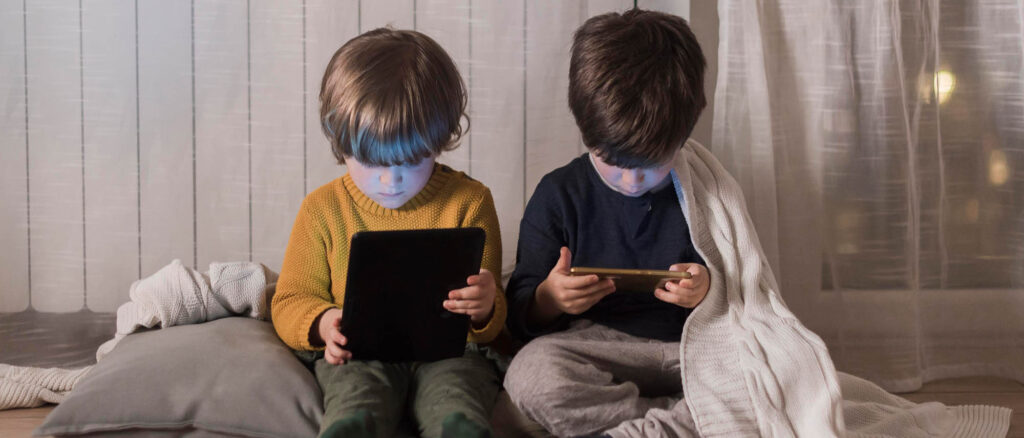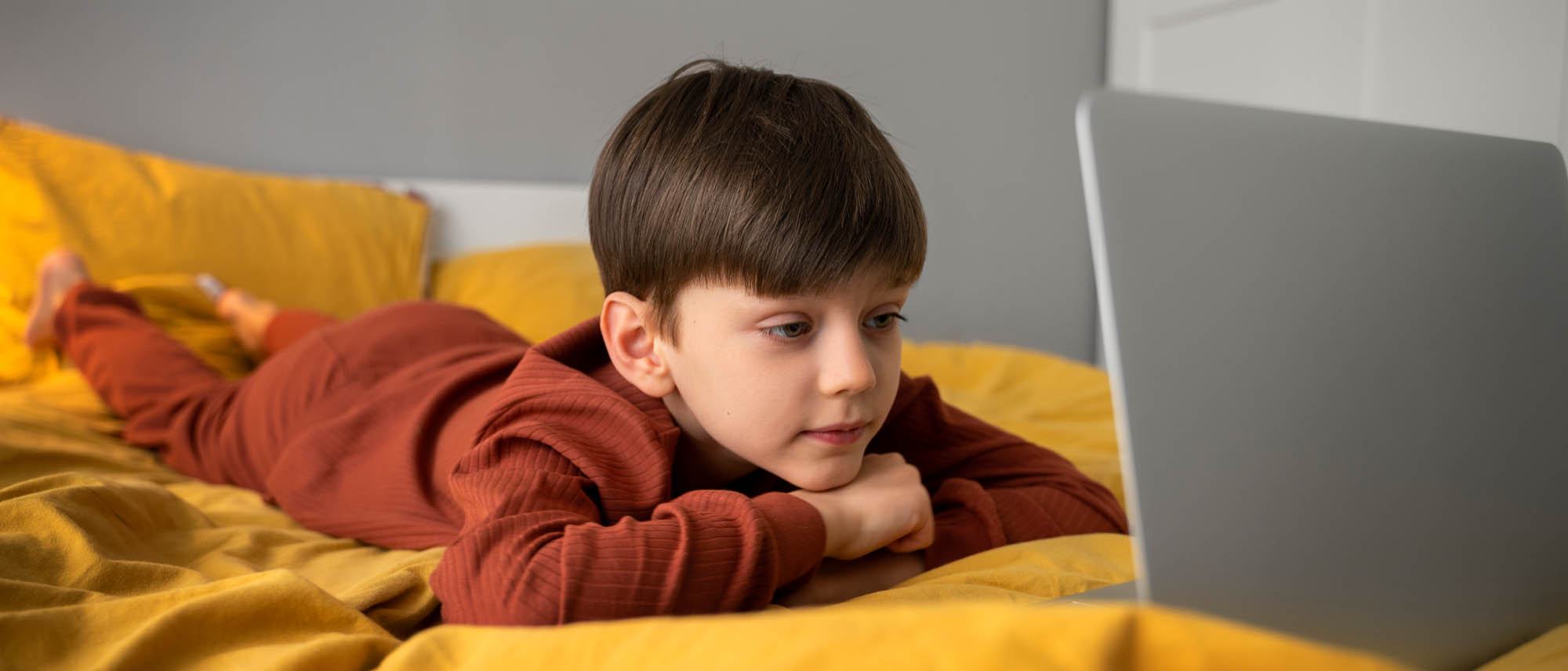The effects of screen time on kids are more serious than most parents realize. While screens are part of modern life, excessive exposure can negatively impact your child’s growth, learning, and emotions.
In India, especially post-COVID, screen exposure has increased drastically. As parents, it’s crucial to understand how this affects your child’s brain, body, and behavior, and what you can do to strike a healthy balance.
1. Delayed Speech and Language Development
Too much screen time, especially for children under 5, can reduce parent-child interaction. Studies show that toddlers who spend long hours on screens may have delayed speech and poor vocabulary.
2. Poor Sleep Quality
Screens emit blue light, which interferes with melatonin—the sleep hormone. Kids who use phones or TVs before bedtime often suffer from difficulty falling asleep, irregular sleep patterns, or reduced sleep quality.
3. Behavioral Problems
Children exposed to aggressive content or long screen hours are more likely to show signs of irritability, mood swings, aggression, and difficulty focusing. This is especially true for kids between 5 and 12 years old.

4. Reduced Physical Activity
With increased screen time, children are spending less time outdoors. This can lead to obesity, weak muscles, poor posture, and vitamin D deficiency.
5. Impact on Emotional Growth
Screens don’t teach children how to handle real-life emotions like anger, sadness, or frustration. Kids who rely heavily on screens may struggle with emotional regulation and empathy.
6. Eye Strain and Headaches
Prolonged screen exposure leads to digital eye strain—causing dry eyes, blurred vision, and frequent headaches in school-going children.
7. Decline in Academic Performance
Too much screen time (especially gaming or YouTube) can lead to reduced concentration and poor academic focus. Many parents report a drop in study habits and memory power.
How Much Screen Time Is Too Much?
According to the Indian Academy of Pediatrics and WHO:
- Below 2 years: No screen time at all
- 2–5 years: Max 1 hour per day (supervised)
- 6–18 years: Max 2 hours per day (excluding schoolwork)
How Indian Parents Can Take Control
- Create a screen schedule for weekdays and weekends
- No screens during meals or in bedrooms
- Replace screen time with hobbies like reading, drawing, or puzzles
- Encourage offline bonding through family games and storytelling
- Avoid using screen as a reward or punishment
Balanced screen time is key—not total restriction. As a parent, your involvement and consistency matter most. When used wisely, technology can be a tool for growth, but left unchecked, it becomes a silent thief of your child’s health, happiness, and development.
Frequently Asked Questions (FAQs)
Q1. Is screen time always bad for kids?
Not necessarily. Educational content under parental supervision can be beneficial. The problem is excess and unsupervised use.
Q2. How do I reduce screen time for my child?
Start by setting rules, being a role model, offering alternatives, and staying consistent.
Q3. What are good screen-free activities?
Art, puzzles, gardening, board games, music, books, storytelling, and outdoor play.
Q4. What are the long-term effects of screen time on kids?
The long-term effects of screen time on kids include poor concentration, delayed social skills, sleep disturbances, and reduced physical activity. Prolonged screen exposure can also impact emotional development and academic performance. To minimize these effects, it’s essential for parents to set healthy screen boundaries and encourage more real-world interactions.




